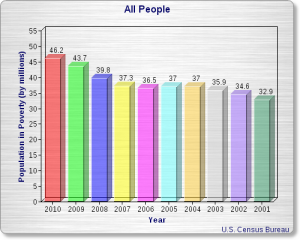African Americans

America is still led by an apathetic majority void of compassion, empathy, and sympathy. A majority unable and unwilling to confess their biases, hate, phobia, and toxicity, making themselves apathetic to the reality of African Americans. From their perspective intentional and toxic discrimination, racism, and police practices is not their problem; they have no role in this plight and degradation.

The survey illustrates the intersectionality of race and environmental justice, referencing research by the NAACP that found that race is the principle indicator of the level of susceptibility to environmentally-caused negative health outcomes, as well as economic and pyschological impacts.
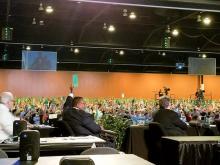
After a fierce backlash on social media, Southern Baptists reversed course and adopted a statement denouncing “alt-right white supremacy,” calling it “antithetical to the Gospel of Jesus Christ.”
The unusual move on June 14 was a shift from the previous day, when the Southern Baptist Convention’s Resolutions Committee declined to bring to a vote a Texas pastor’s proposed resolution condemning the “alt-right” movement, whose members include white supremacists.
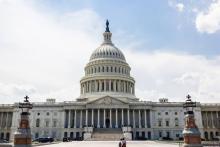
Power can be transformative, but only if power is suffused with love. As Andy Crouch has written, “Power at its worst is the unmaker of humanity—breeding inhumanity in the hearts of those who wield power, denying and denouncing the humanity of the ones who suffer under power.… Power, the truest servant of love, can also be its most implacable enemy.”
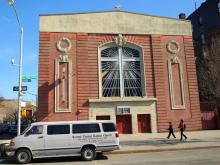
The neighborhood has long been home to numerous historic and not-so-historic houses of worship of nearly every size and type. Here you can find congregations of Muslims, Hebrew Israelites, AMEs, Baptists, Presbyterians, Pentecostals, and everything else in between.
So who cares if a few churches have to be razed to make Harlem “great again,” right?
I do.
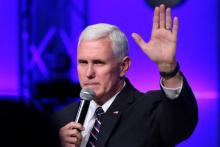
A decade ago, a critic accused me of writing a book about a “nonexistent” threat from the religious right. One reviewer called my work a “paranoid rant,” while another detractor wrote my “alarmist” views were “exaggerated and implausible.”
In The Baptizing of America: The Religious Right’s Plans For The Rest Of Us, published in 2006, I had warned that a well-financed and highly organized group of religious and political leaders was seeking to impose their narrow extremist beliefs and harsh public policies on the United States, even as our nation’s population was increasingly multireligious, multiethnic, and multiracial.

The Rev. Leah Daughtry stood in front of fellow black Christian leaders and told them they will need to work harder for social justice.
“If you’ve been feeding them, now clothe them,” said the Pentecostal pastor and 2016 CEO of the Democratic National Convention Committee at a conference last week. “If you’ve been clothing them, now console them. If you’ve been at a march, now lead the march. If you’ve been at a rally, now organize the rally.”
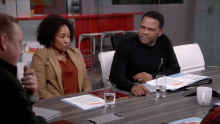
“You don’t think I care about this country?” asks Dre, an African American character played by Anthony Anderson, on the television show black-ish, in the Jan. 11 episode “Lemons.”
“I love this country, even though at times it doesn’t love me back.”
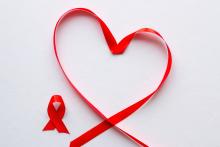
It’s safe to say that no Christian community I've been a part of has ever brought up the U.S. domestic crisis of HIV/AIDS. In fact, I can’t recall ever hearing an American Christian even utter the words.
And in conversation with others, I know that too many have only heard about it from pastors who preach that homosexuality is an unforgiveable sin and that HIV/AIDS is God’s wrath at work — despite the fact that HIV/AIDS affects people of many ethnicities and sexual orientations, and that the infection is often transmitted in ways other than sexual intercourse. Hearing Christians speak seriously and nonjudgmentally about HIV/AIDS, with the intent of acting to help eradicate the illness and protect the lives of those whom the illness has affected, is too rare.

OUR LADY QUEEN of Peace church sits atop a low bluff overlooking the Army Navy golf course. This vibrant Arlington, Va. Catholic community has a history of staring hopelessness in the eye and declaring, “Not on our standing ground!”
Queen of Peace was founded by African Americans in the midst of virulent segregation. In the 1940s, Arlington’s black Catholics had to travel two hours by buses to attend a Mass where they were welcome. There was a closer church, but black Catholics were relegated to the back pew and prevented from receiving communion before whites. In 1945, 16 families pooled their money, hired a black real estate agent, and purchased small parcels of adjoining property under various names so as to not arouse suspicion. In an era when redlining and “neighborhood covenants” protected white enclaves and economic power, this was a courageous act. A little less than two acres—their standing ground—was purchased for $14,000. The bishop blessed Queen of Peace, Arlington’s first black Catholic congregation, on Pentecost Sunday 1947.
Now, nearly 70 years later, this multicultural community is asking a new question: With global temperatures rising and changes visible everywhere in nature, how do we face the truth of climate change?
During a speaker series in March focused on “the integrity of creation,” I encouraged them to overlap the ecclesial concept of “parish” with the ecological one of “watershed.” For life to persist, there must be living water. Scientists tell us that each watershed, no matter how small, is responsive to climate change. Since human activity has destabilized the climate, changing human activity is important in undoing the harm. And since the earth’s biosphere is made up of interlinked watershed communities, perhaps restoring our particular watershed is analogous to healing the earth at its “cellular” level, which would be a positive contribution.

WHEN I READ about the dire impacts of global warming, I think about Howard Thurman. This might be perplexing to those more familiar with Thurman as the author of Jesus and the Disinherited, a book Martin Luther King Jr. was said to carry with him wherever he went.
While Thurman is well-known as a theologian, prolific writer, mystic, seminary professor, and religious leader, few realize that—well before environmentalism became mainstream—Thurman articulated a complex theology of the “original harmony of creation,” a harmony that human action had significantly disturbed. As he lamented in 1971, “Our atmosphere is polluted, our streams are poisoned, our hills are denuded, wildlife is increasingly exterminated, while more and more [humanity] becomes an alien on the earth and a fouler of [our] own nest.”
From the early years of his life at the start of the 20th century, Thurman’s faith was formed in intimate connection with the natural world—specifically, the Halifax River and northeast Florida woods and coastline, where he wandered and played as a boy. Thurman’s relationship with nature deepened when a heartbreaking event estranged him from organized religion. When he was 7, his beloved father died quite suddenly. The family pastor refused to conduct a funeral because his father was not a regular churchgoer, and a traveling minister who officiated at the service took the opportunity to expound on the dangers of dying “out of Christ”—to the small boy’s wonderment and rage, “preach[ing] my father into hell,” as he later recalled.
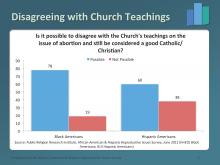
The influence of clergy in swaying their congregants' attitudes about moral issues like abortion and contraception access is dwindling, according to a new study.
The Religion, Values, and Experiences: Black and Hispanic American Attitudes on Abortion and Reproductive Issues survey, conducted by the Public Religion Research Institute, shows that there continues to be a disconnect in personal, moral belief and feelings about public policy.
"What they're hearing at church is not the big mover on attitudes of legality of abortion," Robert Jones, PRRI CEO, said.
While 51 percent of black Americans believe abortion is morally wrong, 67 percent say it should be legal in all or most cases.
"I really think that freedom of choice is probably one of the most precious components of what it means to be a Christian. Blacks have been quite possessive and reflective of this fact," said Dr. Stacy Floyd-Thomas, associate professor of Ethics and Society at Vanderbilt University's Divinity School. "… You do have the majority saying that they might see it as a sin or they are against it, but you still have the right."
Both groups believe it is possible to disagree with church teaching and be a good Catholic or good Christian. Jones pointed to the growing trend of personal versus external focus. Previous surveys have shown that attitudes about religion are mostly influenced by people's own beliefs and behaviors rather than institutional doctrine.
Many people who were hopeful for change in the wake of Barack Obama's election have become disillusioned by the rancorous politics of the last few years. What does it take to sustain the struggle for justice over the long haul?
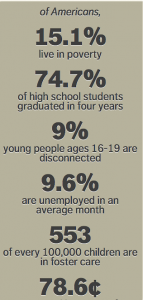
Perhaps the most important finding from the report is that we have both the experience and the policy tools necessary to cut poverty in half.
Between 1964 and 1973, under both Democratic and Republican administrations, the U.S. poverty rate fell by nearly half (43 percent) as a strong economy and effective public policy initiatives expanded the middle class.
Similarly, between 1993 and 2000, shared economic growth combined with policy interventions such as an enhanced earned income tax credit and minimum wage increase worked together to cut child poverty from 23 percent to 16 percent.
We can't do this alone.
The Census Bureau on Tuesday released the latest data on poverty in the United States, and the news was troubling.
In the graphics below, you can see how poverty rates have increased over the last decade - overall, as well as among African Americans, children and families.
For the complete Census Bureau report click HERE.
For a graph charting the poverty rate from 1959 to the present, click HERE.
The forthcoming dedication of the national memorial monument honoring Rev. Dr. Martin Luther King, Jr., affords an opening for considering the complexity and meaning of his leadership. He was not the tamed and desiccated civil hero as often portrayed in the United States around the time of his birthday, celebrated as a national holiday. He was until the moment of his death raising issues that challenged the conventional wisdom on poverty and racism, but also concerning war and peace.
King was in St. Joseph's Infirmary, Atlanta, for exhaustion and a viral infection when it was reported that he would receive the 1964 Nobel Peace Prize. As Gary M. Pomerantz writes in Where Peachtree Meets Sweet Auburn, this was the apparent cost exacted by intelligence surveillance efforts and the pressures of learning that Attorney General Robert F. Kennedy had formally approved wiretaps by the Federal Bureau of Investigation. His evolving strength as a leader is revealed in his remarks in Norway that December, which linked the nonviolent struggle of the U.S. civil rights movement to the entire planet's need for disarmament.
Broadcaster Tavis Smiley and Princeton professor Cornel West just wrapped up their 18-city "Poverty Tour." The aim of their trip, which traversed through Wisconsin, Detroit, Washington, D.C., and the Deep South was to "highlight the plight of the poor people of all races, colors, and creeds so they will not be forgotten, ignored, or rendered invisible." Although the trip has been met with a fair amount of criticism, the issue of poverty's invisibility in American media and politics is unmistakable. The community organizations working tirelessly to help America's poor deserve a great deal more attention than what is being given.
The main attack against the "Poverty Tour" is Smiley and West's criticism of Obama's weak efforts to tackle poverty. For me though, what I would have liked to see more is the collection of stories and experiences from the people West and Smiley met along their trip. The act of collective storytelling in and of itself can be an act of resistance.
Being a socialentrepreneur used to be a lonely endeavor. I grew up believing that to be in business meant leaving your soul at the front door -- being ruthless, shrewd, and above all focused on profitability at any cost. But as a businessman, I found myself less interested in the bottom line of profit than in the bottom line of community impact. For example, I started Busboys and Poets as a restaurant and gathering place, but also a social enterprise -- a business with a conscience -- in Washington, D.C.'s U Street neighborhood.
Having grown up in D.C., I was amazed at the dramatic changes that swept various neighborhoods in the 1990s. The U Street corridor in particular was undergoing some of the most vivid transformation.
Re: Carolyn McKinstry's "From Mourning to Gladness" (May 2011): Birmingham Sunday spurred many African Americans and European Americans to get involved in the civil rights movement.
